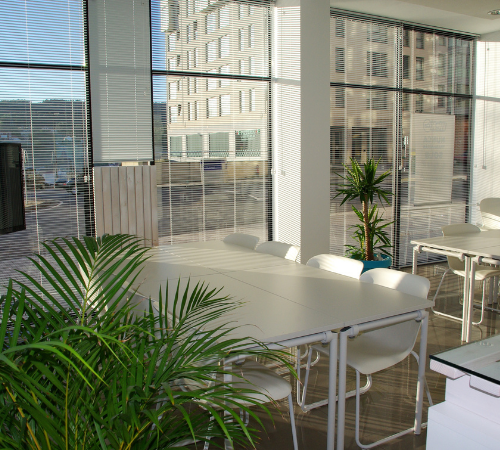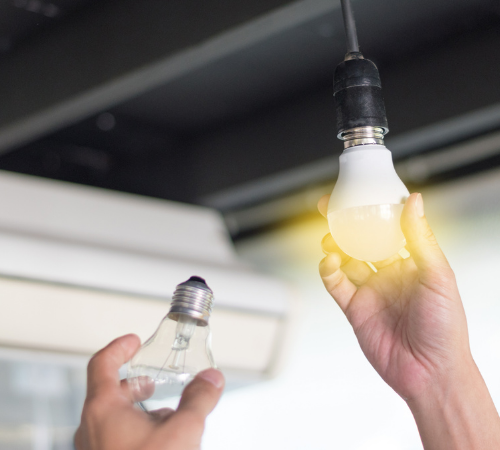A survey earlier this year predicted that COVID-19 could cost small businesses in the UK an estimated £69 billion, or on average £11,799 per business. Since then we’ve suffered local lockdowns, the threat of a potential second wave and had to get to grips with a ‘new normal’.
Additionally, experts estimate that SMEs are spending an average £21,830 just to reopen, to comply with new health and safety measures and invest in new tech such as contactless payment.
These added financial pressures will mean cutting overhead costs are likely to be one of the top priorities for SMEs. One way to reduce costs is by learning how to save energy, which will in turn reduce the energy bill for your business.
On that note, let's look at some of the best tactics to help trim your business' energy costs now.
Energy statements come with a monthly breakdown, it gives you a deeper insight into how much energy you’ve used. Some suppliers may also provide online customer portals or apps to give you an even more detailed breakdown, so you can view when usage is at its peak. By knowing your usage, you can compare it with other similar businesses to see if you are using more than the normal.
One comparison strategy is to use the Energy Benchmark Tool offered by The Carbon Trust. Just fill it in with the required details. It'll then compare your energy usage with similar businesses, and you can see if yours is above the norm.
If so, then it's time to take action with the following energy-saving tips.
Lighting accounts for up to 40% of the electricity use of commercial buildings, so if there is opportunity to minimise reliance on artificial lighting, you can achieve high energy-saving potential.
As we move into autumn, we can expect fewer average hours of sunlight a day compared to the summer, 12 hours compared to 16 hours, so it’s even more important to utilise as much natural light as possible.
South-facing windows allow for the highest amount of both sunlight and heat. Keep the blinds and shades on these windows open during the earliest hours of the workday. If the heat does turns up, just adjust the slats of the blinds to stave off heat but still let some light in.
Allow all other windows to permit sunlight by removing any obstructions. Arrange office desks and equipment near the windows to maximise natural light. Pay close attention to the layout, though, to avoid problems with glare – if social distancing guidelines permit.
With these strategies, we can reduce our dependence on artificial lights. Fewer lights that burn non-stop, in turn, can cause a significant decrease in energy bills.

During the colder and breezier months, draughts can easily be felt and can make a room feel a lot colder. Adequately draught proofing a building can reduce energy bills by 15%, along with other benefits such as sound insulation. Also, draught-free buildings are comfortable at lower temperatures, meaning you can set the thermostat slightly lower, making further savings.
Draught proofing can be relatively inexpensive, such as strips for windows frames, installing a letterbox brush, filling in old extractor fan outlets or flexible filler for cracks in walls and skirting boards.
Air flow is still important though, so make sure you don’t block up any intentional ventilation such as airbricks and wall vents.
Back in September 2018, the UK, as part of an EU directive, banned the production of halogen light bulbs. However, at the start of 2020, the UN also phased-out mercury-containing fluorescent lamps. Whilst the UK still allows for the use of compact fluorescent lamps (CFLs), now's a good time to considering switching them out with LEDs.
For starters, LED lights are more energy-efficient than CFL bulbs. For instance, a LED bulb that replaces a halogen one can reduce electricity bills by £40 a year. By contrast, a CFL bulb that replaces a halogen can only save around £3 per year.
We also have to factor in how LED bulbs can last up to ten times longer than small fluorescent bulbs. Meaning, for every LED bulb we buy, we would otherwise have to purchase ten small CFL bulbs. As such, LEDs aren't only more energy-efficient; they also bring more savings in the long-run.

Remind everyone about the benefits of saving energy throughout the workplace. This is especially crucial in areas that don't get traffic 100% of the time, such as the bathroom and break out areas. Do the same for conference rooms and other often unoccupied rooms.
Smart LED bulbs can further help us save energy by automatically switching on only as needed.
For instance, some smart LEDs only go on when they no longer detect the presence of sunlight. They then automatically turn off once the sun is up and about. These make them ideal as external lights, which many people often tend to forget.
Motion detecting lights are also fantastic, as they only light up if they sense movement. These work great for areas that don't see much foot traffic.
Smart meters are the latest innovations in gas and electricity meters. They deliver almost real-time readings of energy use. As such, they provide us with a quick and accurate way to track our energy usage and costs.
Because of this, smart businesses are switching to smart metering. One reason is that they enable SMEs to figure out the whys behind their high energy use. From here, business owners can then map out plans to reduce their utility.

As you can see, there are plenty of simple strategies on how to reduce your energy bill now and even year-round. Some of these won't even cost anything, such as the simple act of switching unused lights off. We can also take learnings from winter energy-saving tricks, often the time of year that businesses are mostly likely to think about saving energy, and apply them year round.
Is your business ready to make the switch? If so, then please know that our team here at Valda Energy can help your organisation. Get in touch with us now, or request a quote for your electricity, gas, or both.